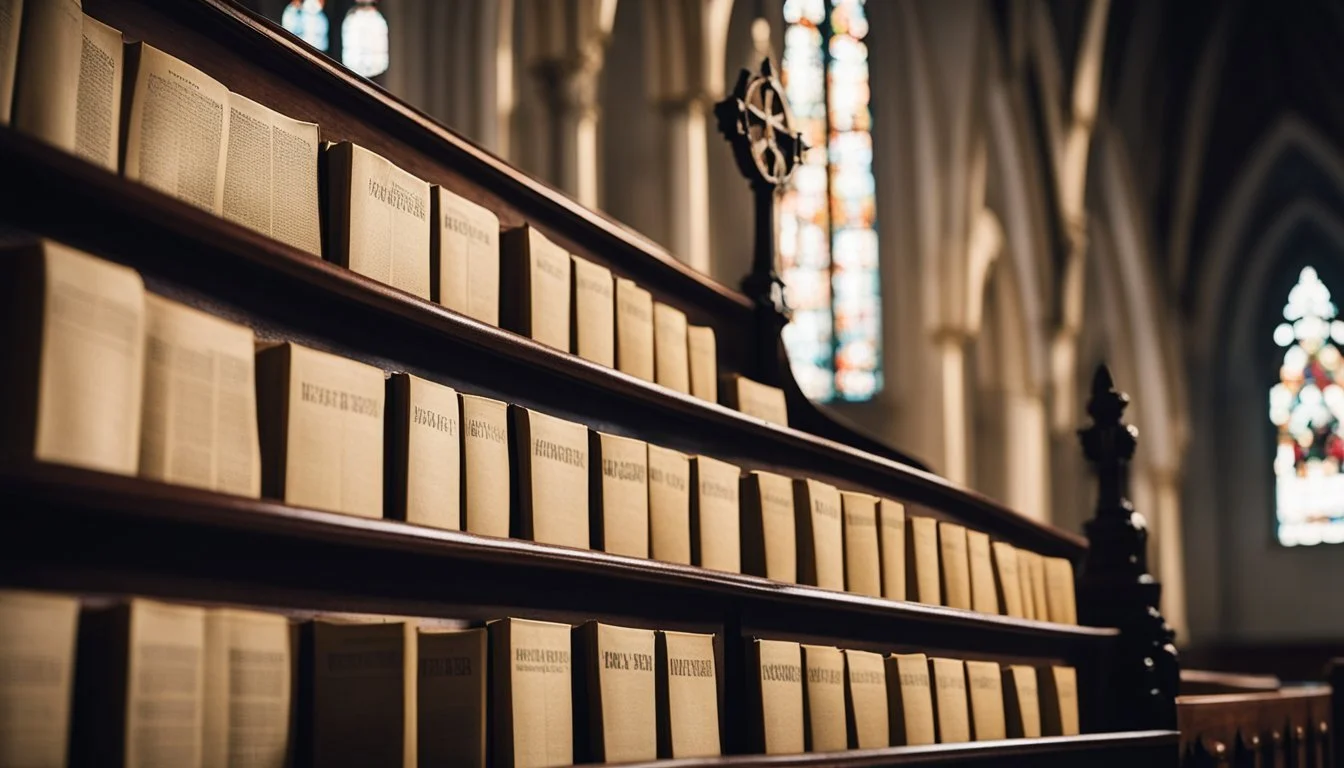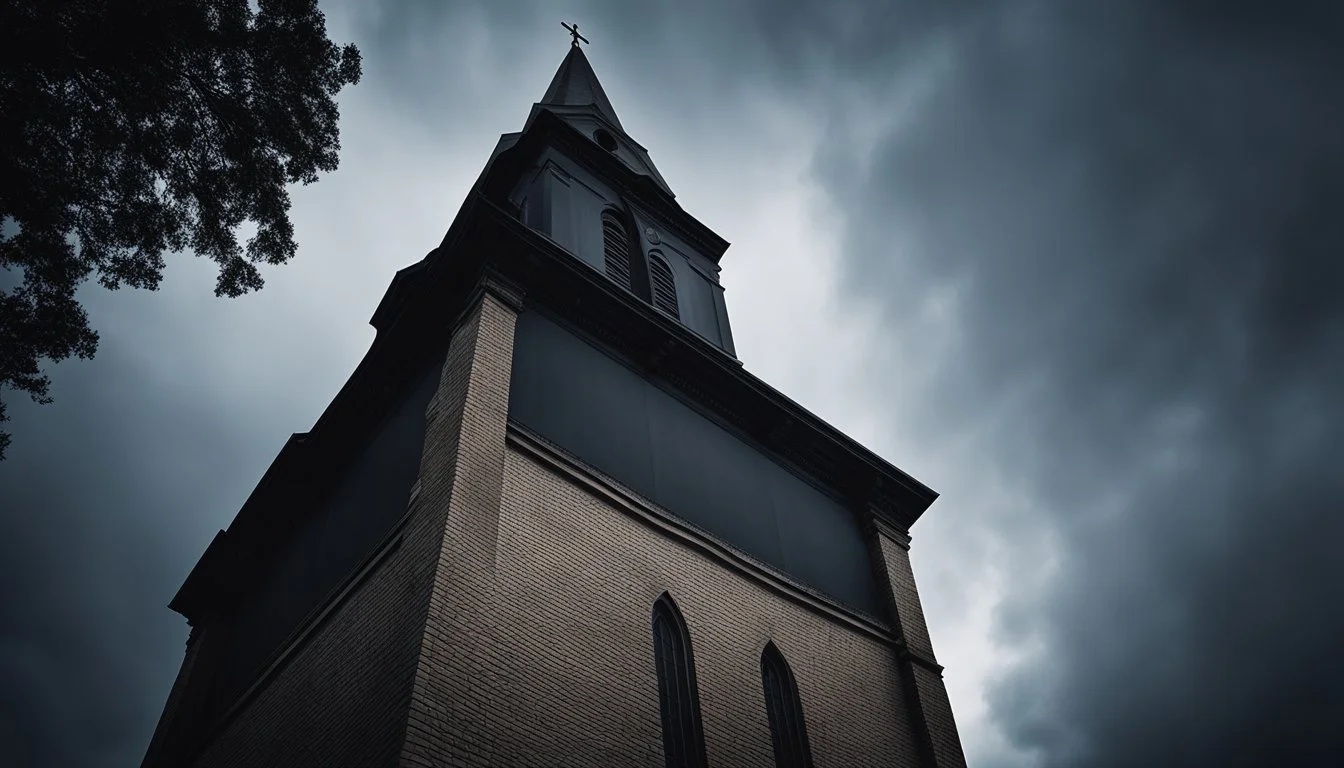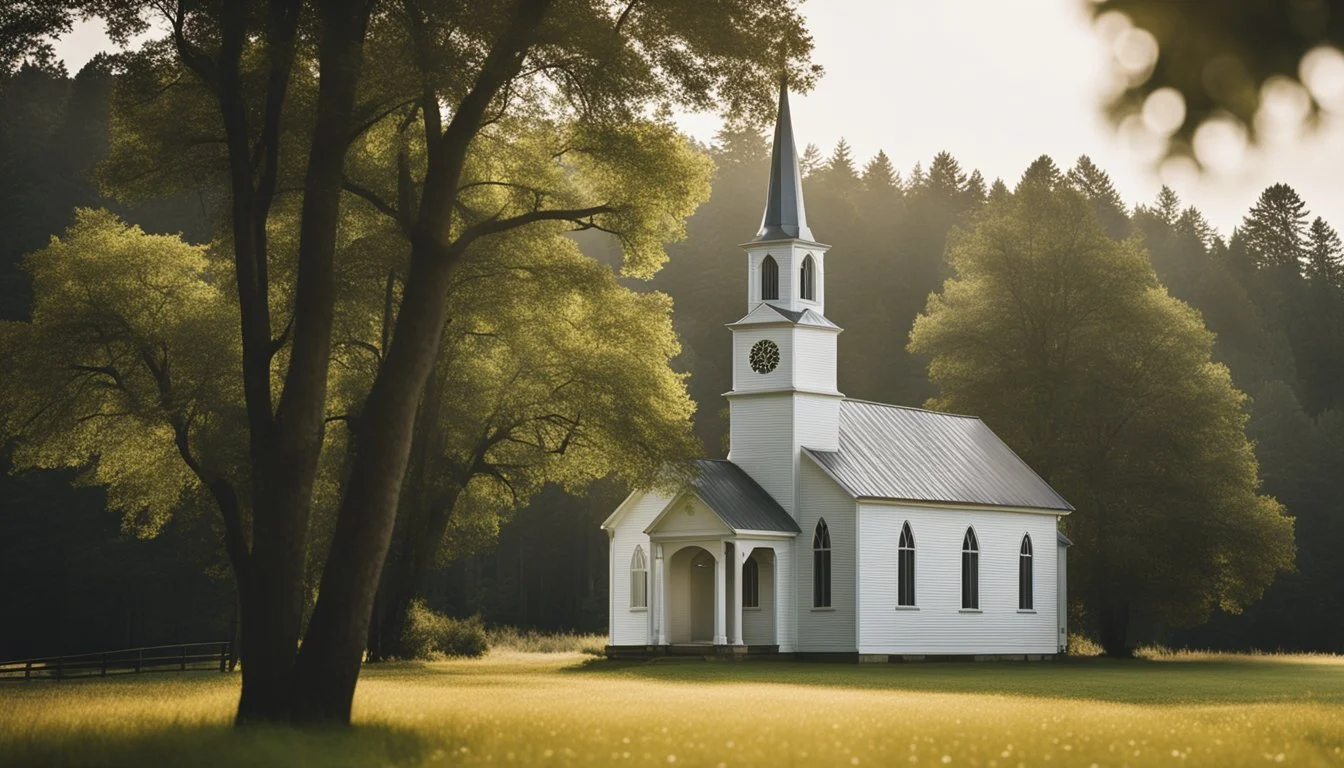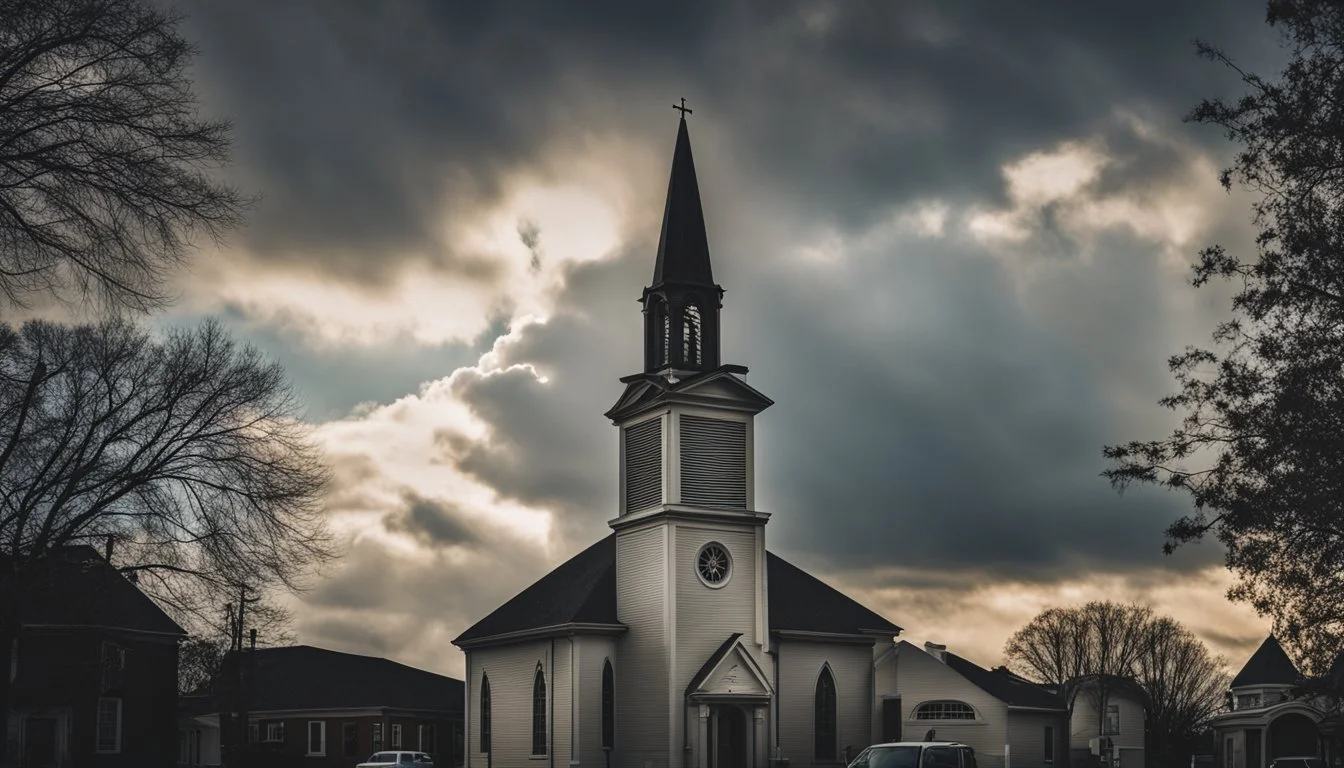5 True Crime Documentaries About Baptist Churches That Will Shock You
True crime documentaries have captivated audiences by revealing the darker side of various communities, including religious institutions. Exploring these institutions through the lens of true crime documentaries offers unique insights into the complex dynamics and hidden abuses that can occur within seemingly sacred spaces.
Baptist churches, especially certain factions, have recently been the subject of several such documentaries. These films often highlight disturbing cases of misconduct and the struggles of survivors seeking justice, providing a sobering look at the impact of these crimes on individuals and communities.
1) The Church Murders: Inside the Scandal (2022)
The Church Murders: Inside the Scandal is a penetrating true crime documentary that examines a horrific series of murders linked to a Baptist church community.
Viewers are taken through the chilling details of the crimes, exploring the events that led up to the murders and the impact they had on the small church community.
The documentary features interviews with law enforcement, church members, and experts who provide insight into the complexities of the case.
It highlights the struggle for justice faced by the victims' families and the broader implications for the tight-knit religious community.
For more information, visit IMDb.
2) Baptist Church Confidential
Baptist Church Confidential (2022) is a revealing documentary that delves into various scandals within Baptist churches. It showcases detailed accounts from victims, activists, and former church members.
The film highlights several high-profile cases of abuse and sheds light on systematic issues that have allowed such behavior to persist. Through interviews and archival footage, the documentary paints a comprehensive picture of misconduct and coverups.
Baptist Church Confidential emphasizes the challenges victims face in seeking justice and the efforts of activists to bring these issues to public attention. It also explores the psychological and social impacts on the survivors.
The documentary is available for viewing on various streaming platforms. For more details, visit IMDb.
3) Broken Faith: A True Story of Abuse
"Broken Faith: Inside the Word of Faith Fellowship, One of America's Most Dangerous Cults" unravels the grim reality of life within the Word of Faith Fellowship. This cult, led by Jane Whaley since 1979, preyed on vulnerable followers through emotional and physical abuse.
Jane Whaley manipulated her congregation through fear and control, resulting in horrifying ordeals for its members. Families within the cult often faced severe punishments for minor infractions, leading to long-lasting trauma. The cult's insidious practices were hidden under the guise of fervent evangelical beliefs.
The book reveals detailed accounts of how children and adults alike were victimized. It documents stories of physical beatings, public shaming, and forced isolation. These terrifying experiences were designed to maintain Whaley's control and suppress dissent within the cult.
One of the most shocking revelations in "Broken Faith" is the murder-for-hire plot orchestrated to silence a public official. This underscores the extent of the cult's reach and the lengths Whaley would go to maintain her dominance.
"Broken Faith" sheds light on the perverse misuse of religion for personal gain and the immense suffering endured by its members. It serves as a stark reminder of the dark side of unchecked charismatic leadership.
For more information, check out the book on Wikipedia.
4) The Deacon's Sin: Secrets and Lies
This documentary sheds light on dark secrets hidden within a seemingly innocent Baptist church community.
A respected deacon, involved in charitable works and revered by his peers, is suddenly accused of heinous crimes. The revelations shock the congregation and the wider community. Many struggle to reconcile the pious figure they knew with the allegations brought against him.
Interviews with church members, victim testimonies, and investigative reports piece together a compelling narrative. Viewers get a glimpse into the deceptive facade maintained by the deacon and the subsequent unraveling of trust within the church.
The documentary also highlights the impact on the victims and their journey toward seeking justice. It raises important questions about accountability and the extent to which individuals in power can manipulate and betray that trust.
For more information, visit IMDB.
5) The Gospel According to Crime
This documentary is one of the lesser-known but powerful films in the true crime genre, released in 2018. It examines the intersection of faith and crime, shedding light on various incidents within Baptist churches where morality and legality clash.
Produced by an independent filmmaker, the narrative follows multiple cases across different states. Each story highlights the challenges that arise when church leaders or members commit crimes, often hidden under a veil of righteousness.
The film features interviews with victims, law enforcement, and experts, providing a multi-faceted view of how these crimes affect both individuals and communities. It focuses on crimes ranging from financial fraud to more severe offenses, showcasing the complex dynamics involved.
Despite the heavy subject matter, the documentary maintains a neutral tone, allowing viewers to form their own opinions. It prompts important discussions about accountability within religious institutions and the role of faith in justice.
For more information, you can visit IMDb.
Historical Context of Baptist Churches
Baptist churches have a rich history marked by their distinct origins and significant evolution over time, alongside their unique core beliefs and practices that continue to influence their members worldwide.
Origins and Development
Baptist churches trace their roots back to the early 17th century. Originating from the English Separatist movement, they emphasized the importance of voluntary faith and believer's baptism.
The first Baptist congregation was established in 1609 in Amsterdam by John Smyth and Thomas Helwys. By 1638, Roger Williams had founded the first Baptist church on American soil in Providence, Rhode Island.
The movement grew rapidly, particularly in the American South, where it became a dominant faith group. Various branches, including General Baptists and Particular Baptists, formed. Major milestones included the adoption of key confessions of faith like the 1689 Baptist Confession, which helped standardize Baptist beliefs.
Core Beliefs and Practices
Baptists hold several key beliefs that distinguish them from other Christian denominations. They emphasize believer's baptism by immersion, rejecting infant baptism. Baptists believe that baptism should be an act of faith by individuals who can consciously profess their belief in Christ.
Another central concept is the autonomy of the local church. Each congregation is self-governing, allowing for significant diversity within the Baptist tradition.
Baptists also uphold the authority of the Scriptures, believing the Bible to be the ultimate guide for faith and practice. Additionally, religious liberty is a significant tenet, advocating for the separation of church and state.
These core beliefs shape Baptist worship and community life, ensuring consistency in doctrine while allowing flexibility in practice.
True Crime in Religious Settings
True crime documentaries set in religious contexts often explore the complexities involved in such environments. These settings can highlight psychological manipulation and community impacts, adding layers to the crime's narrative.
Psychological and Sociological Factors
Religious settings often involve strong authority figures and deep-seated belief systems. This unique environment can contribute to psychological manipulation. For instance, the systemic abuse within certain Independent Fundamental Baptist (IFB) Churches showcases how faith can be weaponized.
Victims may experience cognitive dissonance, feeling torn between their beliefs and the abuses they suffer. Sociologically, group dynamics within these communities can suppress dissent, making it difficult for victims to come forward. This collective mindset often prioritizes community reputation over individual well-being.
Impact on Communities
Crimes within religious settings profoundly affect community cohesion. The revelation of misconduct by trusted leaders can be devastating. Congregants may feel betrayed, leading to a loss of faith and trust in the institution.
In the case of IFB Churches, documentaries like "Let Us Prey: A Ministry of Scandals" illustrate how entire communities grapple with the fallout of exposed abuses. Members may face an identity crisis, questioning their association with the faith and their community’s moral standing. This can result in a ripple effect, extending beyond the immediate congregation to the broader denomination and their public perception.
Documentary Filmmaking Techniques
Producing a compelling documentary about Baptist churches involves navigating ethical challenges and applying specific storytelling methods to engage viewers effectively.
Ethical Considerations
Filmmakers must ensure the accurate representation of sensitive subjects. This requirement often involves obtaining informed consent from participants, especially those involved in controversial events.
Transparency is key. It is important to disclose the filmmaker's intentions and potential impacts on participants’ lives. Balancing the need for storytelling with respect for privacy and dignity is crucial.
Addressing bias is another significant factor. Objective portrayal helps in maintaining credibility. Therefore, interviews and evidence must be corroborated to avoid misrepresentation.
Narrative and Storytelling Methods
Creating a cohesive narrative in crime documentaries involves strategic structuring. Filmmakers often employ chronological storytelling to present events as they unfold.
Narrative devices such as first-person accounts bring an emotional depth. This technique helps viewers connect with the subjects on a personal level.
Visual elements like archival footage and reenactments support the story, providing context and enhancing engagement. Music and sound effects can evoke specific emotions, adding layers to the narrative.
Careful editing is vital. It ensures a smooth flow and maintains interest, ensuring the documentary is both informative and captivating.








